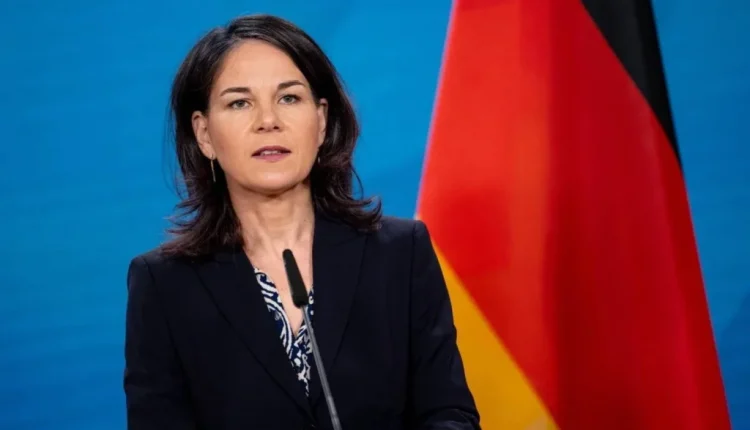German Foreign Minister Ties Support to Syria’s New Government to Inclusive Path, Highlights SDF’s Role
By Kardo Roj
QAMISHLI, Syria (North Press) – German Foreign Minister Annalena Baerbock warned on Friday that Germany and Europe are not prepared to fund Syria’s new administration unless it follows a constructive path, signaling that European support hinges on the incoming government’s actions. Speaking to Rudaw Media Network, Baerbock emphasized the need for an inclusive political process as Syria prepares to announce a transitional government on Saturday, while underscoring the Syrian Democratic Forces’ (SDF) critical role in securing the northeast.
Baerbock outlined a clear stance: “We are ready to assist [Damascus] in lifting sanctions and rebuilding, but there must be a political process involving all parties and actors.” She added that while positive rhetoric from Syrian officials has been plentiful, “words alone are not enough—if they remain mere talk without action, Syria will stay in crisis, and our assistance is tied to these principles.” Her comments come as Syria’s transitional government is expected to take shape by late March or early April, following the Assad regime’s collapse in December 2024.
Addressing the new administration directly, Baerbock stated, “I told them clearly: if it heads in the wrong direction, we will not provide support.” She defined the “right direction” as one where “Syria belongs to everyone,” noting external actors like Iran and Hezbollah are attempting to steer the process otherwise. Baerbock also explained Europe’s proactive engagement: “If Europeans aren’t there now, alongside Arab neighbors, others will step in, and that won’t serve the people’s interests. Will we succeed? I don’t know, but at least we will have tried.”
The minister highlighted the Kurds’ pivotal role in Syria’s security landscape, crediting them with forcing ISIS back with support from the U.S.-led anti-ISIS coalition. “In the vacuum that has emerged, we must not allow ISIS to return,” she said, stressing the need to integrate Kurds—the country’s second-largest ethnic group—into the Syrian army as a “national interest.” Baerbock urged the interim government to join the anti-ISIS coalition, asking, “Why not become part of it?” Her remarks align with the SDF’s ongoing efforts to maintain stability in northeast Syria under the Autonomous Administration of North and East Syria (AANES).
Baerbock revealed that German Foreign Ministry representatives visited northern Syria, facilitating talks between SDF commander Mazloum Abdi and other parties. “I couldn’t visit myself due to security conditions, but we created an opportunity for them to sit, talk, and discuss together,” she said. While Germany cannot dictate outcomes, she emphasized the importance of fostering dialogue to shape Syria’s future.
The SDF, backed by the U.S., has secured northeast Syria since defeating ISIS in 2019, creating a stable zone amid the country’s broader upheaval. The AANES, supported by the SDF, has prioritized governance and security, contrasting with areas where power struggles persist following Assad’s fall. Baerbock’s focus on Kurdish integration reflects a broader European interest in leveraging the northeast’s stability to counter threats like ISIS, while her cautious tone avoids direct engagement with other factions vying for influence.
As Syria stands at a crossroads, Baerbock’s statements signal that European aid—crucial for reconstruction—depends on a government that reflects inclusivity and action over promises. The SDF’s proven track record against ISIS positions it as a key player in this vision, particularly in the northeast, where stability offers a foundation for broader recovery. With the transitional government’s formation imminent, the coming weeks will test whether Damascus heeds this call, balancing internal dynamics with international expectations to secure the support needed to rebuild a fractured nation.

